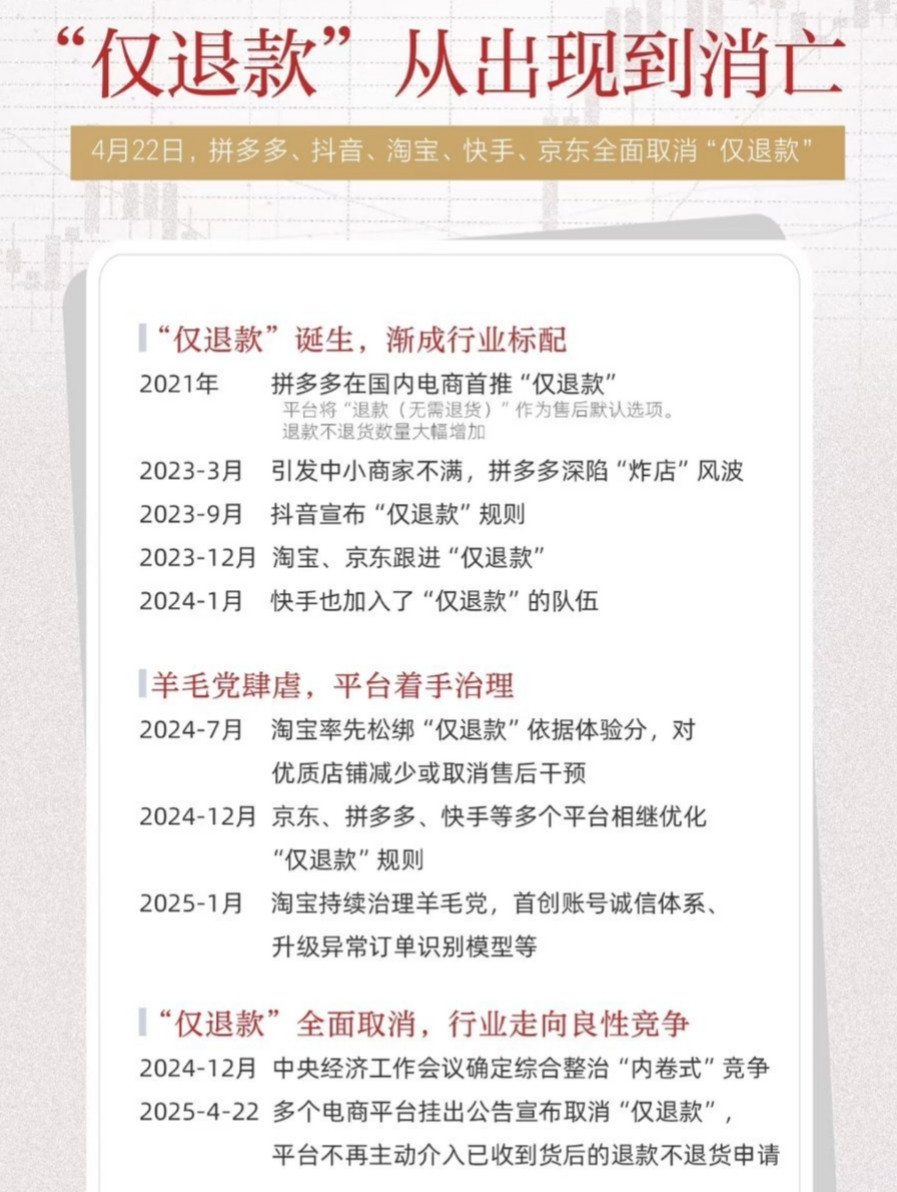The "refund only" storm has reopened and the e-commerce platform has been completely cancelled. Do you support it?
Recently, on the hot search list of Weibo, the two topics of "refund only" and "e-commerce platforms cancellation of refunds only" have aroused widespread attention and discussion. This change not only touched the hearts of countless consumers, but also caused merchants on e-commerce platforms to discuss.


The "refund only" policy was once a measure introduced by e-commerce platforms to protect consumer rights and reduce return disputes. In certain circumstances, if there are serious quality problems in the product or obvious defects in the merchant’s service, consumers can receive a refund without returning the product. This policy has indeed provided convenience to consumers to a certain extent and has also enhanced consumers' trust in e-commerce platforms.
However, over time, the "refund only" policy has also exposed some problems. Some consumers have begun to abuse this policy and maliciously apply for only refunds, causing losses to merchants. At the same time, some businesses also expressed dissatisfaction with this policy, believing that it increased their operating risks.

In this context, many e-commerce platforms have announced the complete cancellation of the "refund only" policy. This decision undoubtedly caused a stir in the e-commerce industry. Supporters believe that canceling "refund only" can safeguard the legitimate rights and interests of merchants and promote the healthy development of the e-commerce industry; while opponents are worried that this will weaken consumers' rights and interests protection and reduce consumers' trust in e-commerce platforms.

For this change, the e-commerce platform stated that they did not completely give up the protection of consumer rights, but would take more refined management measures. For example, strengthen supervision of merchant service quality, improve after-sales service standards, and establish a more complete consumer complaint handling mechanism.
At the same time, e-commerce platforms also call on consumers and merchants to jointly abide by the principle of honest transactions. Consumers should consume rationally when purchasing goods, and when encountering problems, they should solve them through formal channels; while merchants should provide high-quality goods and services to actively respond to consumers' reasonable demands.

The full cancellation of the "refund only" policy will undoubtedly have a profound impact on the e-commerce industry. In the future, how e-commerce platforms find a balance between protecting consumer rights and protecting merchant interests will be a question worthy of attention.
I wonder if you support the "full cancellation of the 'refund only' policy"? Welcome to express your opinions in the comment section.








